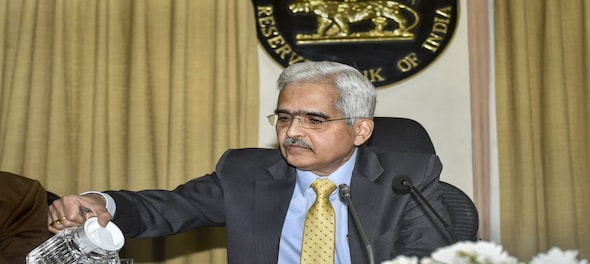
Former RBI governor Urjit Patel has thrown an important issue into the world’s and India’s central banking think tank. In a recent article titled 'Time for central banks to stop dithering over climate', Patel strongly argued that central banks need to work climate change impact into their growth calculations while setting interest rates. He warns that overlooking risks to growth posed by climate change may prove to be as serious as ignoring of financial risks by central banks in the 2003-2008 period.
Patel isn’t the only central banker to raise these concerns.
The Bank of England for the past two years has been making full-fledged climate disclosures and has indeed worked climate impacts into many of its decisions. These include the following:
1.
It has set targets to reduce its own emissions due to money printing, airtravel etc. The BOE has shifted increasingly to renewable energy and declared in its annual report in June that it “remains on course to meet our ambitious target of reducing emissions by 63% from 2016 to 2030, a level of reduction consistent with the goals of the Paris Agreement”.
2. In its supervisory function, it has sensitised all banks and finance companies to work in climate risks while setting rates.
3. The BOE itself holds its reserves largely in UK bonds, a country more compliant than others with emission targets. The bank also factors climate behaviour of the corporates whose bonds it holds.
But Dr Patel goes a step further. He points out that modern day rate setting by central banks is governed by how much inflation is above or below the given target and how much actual output is below or above potential output (the term called output gap).
Patel’s argument is that climate change has altered potential output in all economies and will alter it even more in coming years. He points out to the IMF working paper “Estimates from Long-Term Macroeconomic Effects of Climate Change: A cross Country Analysis”. The paper says that sticking to the Paris Agreement and limiting temperature increase to 0.01 degrees Celsius per annum will reduce per capita world real GDP by 1 percent by the end of century, while a business-as-usual approach will reduce per capita GDP by 7 percent by the end of the century.
Patel’s contention, therefore, is that central banks who don’t work in the impact of climate change on potential output are over-estimating the output gap and hence keeping monetary policy looser for longer than they would if they worked in climate changes. He lists some variables and measures that can be taken into account while estimating output.
Several experts, who acknowledge climate challenges, nevertheless want the central bank to steer clear of giving itself more mandates.
Former RBI governor Raghuram Rajan, speaking to Reuters recently, argued that the onus of “green policies” is on the government, not central bank. He argued that central banks should steer clear of unlegislated areas like “green” investments.
Kenneth Rogoff, writing in centralbanking.com, agrees more with Rajan. He says “there is a risk if you promise too many things and stick your neck out in too many areas, you’re going to fail miserably at some point in the future”.
The anti camp, thus, makes two points: 1) That central bankers have enough on their plate; they haven’t been exactly outstanding in even forecasting inflation and so they ought not to get into areas of forecasting and estimation where they don’t have expertise. 2) If climate change is an important factor impeding growth, it is for the sovereign to make policies or even change the mandate of the central bank.
Despite these strong objections from experts, Dr Patel’s argument merits serious consideration. Central banks have the mandate of estimating growth, and if there is unimpeachable evidence that higher growth means higher GHG emissions and that these emissions in turn hurt growth via droughts and disasters that lower labour and capital productivity, then including climate impact clearly becomes the business of central banks.
While little may change immediately in our COVID-preoccupied policy milieu, Patel’s paper will definitely alter not just output estimation by central bankers, but also by all economists and policy makers.
Click here to read other articles by Latha Venkatesh
First Published: Sept 13, 2021 1:44 PM IST
Check out our in-depth Market Coverage, Business News & get real-time Stock Market Updates on CNBC-TV18. Also, Watch our channels CNBC-TV18, CNBC Awaaz and CNBC Bajar Live on-the-go!


Lok Sabha elections 2024: 28% of candidates contesting in fourth phase are 'crorepatis'
May 9, 2024 4:29 PM
Free poha-jalebi to movie ticket discounts: How cities struggling with 'urban apathy' are luring voters to polling booths
May 9, 2024 3:17 PM

